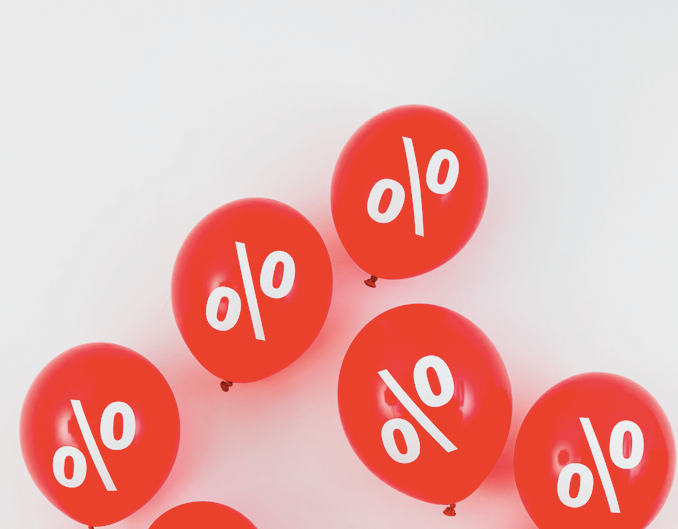
Having a range of different debts in various forms and across an array of lenders can be difficult to manage. Even the most organised of individuals can struggle to keep up with repayments on multiple debts and accidentally missing one can have a huge impact on your credit score and even lead to repossession depending on the type of loan.
Consolidating all your debts into one simple to manage loan can be a great option to make keeping track of your finances much more manageable, but debt consolidation loans are not always the best option. If you are struggling to manage multiple debts, it is important to properly understand what a debt consolidation loan is, how they work and the alternatives available before making any final decisions.
What is a debt consolidation loan?
When you have multiple different debts, it is possible to merge them together into one debt consolidation loan to make them easier to manage and lower the monthly repayments. Debt consolidation loans allow you to borrow enough money to pay off all your existing debts, meaning you then owe the money to just one lender.
You can use a debt consolidation loan to pay off various types of debt including credit cards, overdrafts and finance agreements. They can save a huge amount of hassle and are much more convenient to pay than multiple different debts with different repayment dates, amounts and interest rates.
Debt consolidation loans can also save you a large amount of money on interest as instead of paying for interest on multiple loans; you will only need to pay one single loan with one interest rate.
Who benefits from debt consolidation loans?
This type of loan is common for those with multiple credit cards and are sometimes referred to as ‘credit card refinancing loans’. Debt consolidation loans for credit cards are often a much cheaper way of clearing the debt as the representative APR is usually much lower, allowing you to make huge savings on the amount of interest paid.
Credit cards can make it easy for borrowers to get stuck in a cycle of debt by offering low minimum repayments that usually just cover the monthly interest without reducing the debt amount at all. Debt consolidation loans allow borrowers to break out of these dangerous cycles of debt and make it easy to take charge of their finances.
When you find yourself in a difficult financial situation it can be easy to bury your head in the sand and ignore the problem until it becomes too big to ignore any longer. When it comes to debt consolidation loans, it is best to utilise one before your other debts spiral out of control.
How does a debt consolidation loan work?
The idea behind debt consolidation loans is very straightforward. Instead of juggling multiple debts and loans, you consolidate them all into one easy to manage loan. Debt consolidation loans work by allowing you to borrow the amount that you owe across your various debts and use the funds to pay them all off. You then just need to pay back the one single loan, with one interest rate and one monthly repayment.
If you are paying off multiple debts such as credit cards and overdrafts, it is often a good idea to then close the account or reduce the borrowing limit, so you cannot land in even more debt by reusing the other borrowing methods while still paying off the debt consolidation loan.
Different loan lenders will have different repayments terms and interest rates. This means all debt consolidation loans will operate slightly differently, but the overall concept of borrowing a sum of money to pay off other debts is the same across the board. Most debt consolidation loans are recommended to have a short or medium term to pay off the debt quickly. However, this does make monthly repayments higher. The monthly payments should always be reasonable and affordable to avoid ending up in an even worse financial situation.
Debt consolidation loans are not always the cheaper than paying your existing debts. Make sure you carefully calculate all of the fees and costs involved to work out which is the cheaper option. Seek financial advice if you are unsure of which option is best for you.
When should a debt consolidation loan be considered?
The most appropriate time to use a debt consolidation loan is before your debt has got out of control. If you find yourself in a situation where your income is not enough to cover your outstanding debts, then a debt consolidation loan could be an excellent option to help get everything back in order.
Having multiple debts can be difficult to manage because of the various repayment dates and amounts, and if you are struggling to make payments, then it can be worth considering consolidating your debts. It is common for many borrowers to procrastinate and bury their head in the sand when it comes to their financial situation and multiple debts, but this will only make the situation worse in the long run.
Getting a debt consolidation loan before your finances become a really serious problem is often the best way to take control of your finances and avoid paying expensive interest rates.
When considering a debt consolidation loan, it is essential to properly work out the cost of the loan compared with the cost of your existing debts. In some cases, the savings made are wiped out by fees and charges on the loan. It is also possible to end up paying more back at the end of a debt consolidation loan than you would have on your existing debts depending on the duration of the loan and the repayment terms.
A debt consolidation loan should only be considered if you can afford to keep up with the monthly repayments for the full loan duration. This type of finance is a great option for those looking for an opportunity to cut spending, make savings, change habits and get their finances back on track.
If you decide to take out a debt consolidation loan, set yourself a monthly budget for your spending to help keep yourself on track and to avoid falling back into old habits. Take into account the monthly repayments as well as all your other regular outgoings.
Who can get a debt consolidation loan?
If you are over the age of 18 and have a regular income, then you can apply for a debt consolidation loan. However, different lenders will have different criteria for eligibility. This type of finance is suitable for borrowers who already have a number of debts and are making multiple repayments every month.
Some lenders have a specific set of criteria to be able to make a debt consolidation loan application. Often you will need to be a permanent resident of the United Kingdom, have a UK bank account and an annual income of at least £6,000. Most individuals who take out debt consolidation loans have a poor credit score because of their multiple debts, some lenders specialise specifically in debt consolidation loans for bad credit and will not require a credit check. Other lenders will carry out a credit check, and some will not consider borrowers who have been declared bankrupt or had a CCJ in the last six years.
Double check that you are eligible for a debt consolidation loan before making a full application. If you apply for a loan and are turned down, it will be marked on your credit score, too many of these marks can have a negative impact on your credit history.
Types of debt consolidation loans
When it comes to debt consolidation loans, there are two types of the finance to consider; secured and unsecured. It is essential to properly understand the terms and risks of a debt consolidation loan before making a final decision on whether it is the right choice for you and your financial situation.
Secured Debt Consolidation Loans
A secured loan means that the amount you are borrowing is secured against an asset, usually your home. If you fail to keep up with the repayments, you can be at risk of your home being repossessed to cover the balance of the loan. Occasionally, debt consolidation loans that are secured against your home are known as homeowner loans. Most lenders will offer a secured debt consolidation loan if the amount you want to borrow is a fairly large sum (over £10,000) or if your credit history is poor. The risk of taking out a debt consolidation loan that is secured against your home is very high, and if you do end up falling behind on the repayments, you can end up losing your home to the lender.
Secured loans often offer lower interest rates and are available to borrowers with poor credit ratings because the lender will see it as less of a risk. Consolidating a large amount of existing unsecured debt into a secured debt can be very risky, especially if you are already struggling to keep up with your debt repayments. It is essential to properly weigh up all your options before choosing a secured debt consolidation loan, as they can result in your property being repossessed and leave you homeless. Use this secured loan repayment calculator here on Lending Expert to get an estimate of monthly repayments and interest charges.
Unsecured Debt Consolidation Loans
The more common type of debt consolidation loan is unsecured. This is when the loan amount is not secured against your home or any other assets. Unsecured loans provide a much simpler option for consolidating your debts without the added risk of losing your home. Lenders are often fussier when it comes to who they will offer an unsecured debt consolidation loan too and will usually not approve applications from those with really large debts or poor credit scores. If you do have credit issues then you may need to consider a specialist bad credit lender or a guarantor loan.
Interest rates are generally higher than those offered with secured loans, as you are seen as more of a risk to the lender if you fail to keep up with repayments. If you do default on the loan, your credit rating will be negatively impacted. Furthermore, you could even end up being declared bankrupt. However, your home and belongings may not be at risk of repossession immediately.
Some lenders will accept other assets as security against a debt consolidation loan, speak with your lender about all the options available. You may be able to use your car or even your pension instead of your property but remember whatever you use for security is at risk of being lost if repayments aren’t made.
How much does a debt consolidation loan cost?
The overall cost of a debt consolidation loan is dependent on the lender, the borrower’s financial situation and the amount being borrowed. Most lenders will allow you to borrow anywhere between £1,000 and £20,000 for between 12 and 60 months.
Representative APR rates vary significantly across the market and will change depending on the lender and size of the loan. APR rates range between 3% and 20% depending on the size and length of the loan. It is essential to properly understand not only the interest rate associated with the loan but also any other additional fees and charges you are required to pay. Many debt consolidation loan lenders will charge extra fees and expenses for a variety of reasons including arranging the loan and late repayments.
As well as the cost of the new debt consolidation loan it is important to find out if your existing debts have any additional charges involved with paying them off. Some loans and finance agreements may charge fees for paying the balance earlier than the agreed end date.
Make sure to read the fine print of every debt you want to settle with a debt consolidation loan and calculate if the savings from the loan are cancelled out by fees and charges. Often it can feel like you are making a saving by consolidating your debts, but in the end, you could end up paying out more than you would have done on just your existing debts.
If you are struggling to calculate all of the fees, charges and interest rates on your existing debts and a debt consolidation loan, seek help from a free financial advice service. They will be able to assist and guide you to help you decide which option is best for you.
Advantages of debt consolidation loans
As with any type of finance, debt consolidation loans have their advantages and disadvantages that must be considered carefully before deciding if it is the right option for you. Here are the benefits of a debt consolidation loan:
Hassle free
If you have a lot of different debts across various loans and lenders, it can be a struggle to keep track of your finances and the various repayment terms. A debt consolidation loan allows you to consolidate all of these debts into one simple to manage loan, taking away the hassle of dealing with multiple lenders and the administrative headache that comes with it.
Better budgeting
Consolidating all your debts into one easy to manage loan makes budgeting your finances much more comfortable as you will have just one regular, fixed cost as opposed to many different loans and separate repayments.
Pay back less
This isn’t always the case with debt consolidation loans, but it can work out cheaper to combine all your debts into one lower interest loan agreement. If the new rate of borrowing is significantly less than the original debt, then the overall amount you pay back could be reduced.
Rebuild your credit score
If you are struggling to make repayments on multiple debts, it will have probably had a negative impact on your credit report. A debt consolidation loan can be a great way of rebuilding a poor credit rating by demonstrating that you are a responsible borrower. If you are sensible with making the repayments and don’t take out further credit until your debt consolidation loan is paid off, it can be a convenient way of getting your credit score back on track.
Low interest with secured loans
Usually secured debt consolidation loans have lower interest rates than their unsecured loan counterparts. These low-interest rates can save you a great deal of money if your current debts have a high APR. The monthly repayments will generally be more moderate and more affordable.
Low risk with unsecured loans
If you choose an unsecured debt consolidation loan, the most significant advantage is that your property is not put at risk of repossession like with secured loans. If you do find yourself in a situation where you can’t make the monthly repayments, your home and other assets can be safe for a longer period.
Bad credit accepted
Those with a poor credit rating will often be accepted for some form of debt consolidation loan, although for bad credit ratings you will usually be offered a secured loan. Secured debt consolidation loans are often easy to obtain as they provide less of a risk for the lender. Read this guide to secured loans with bad credit for more information.
One debt-free date
When you have multiple debts with various repayment terms and dates there often isn’t one clear date that you will be debt free. Consolidating everything into one loan gives a definite end date for when you will be debt free if you keep up repayments. Many borrowers find this a significant focus to work towards, as opposed to feeling like debts will be hanging around forever.
Stop collection calls
If you have multiple overdue debts with various lenders, it is likely that they will be contacting you regularly to chase late or missed repayments. By consolidating everything into one loan, you will not have to worry about these collection calls any longer and you’ll feel in more control.
If you have a large amount of debt, it will take a lot of time to eliminate it all completely. It can mean years of scrimping and saving to finally become completely debt free, but often having an end date in sight is a great motivation to keep at it.
Disadvantages of debt consolidation loans
In addition to all the benefits of a debt consolidation loan, it is also vital to properly understand the downsides before deciding if it is the right choice for you. Here are the disadvantages of debt consolidation loans:
Land yourself in higher debt
When considering a debt consolidation loan, it is essential to properly calculate whether it makes financial sense in your situation. In some cases, debt consolidation loans can result in your paying back more than you would have with all your existing debts. It all depends on the interest rates and terms of your current debts compared with the new debt consolidation loan.
Unmanageable monthly repayments
Consolidating all your original debt can sometimes lead to one very highly monthly repayment. Make sure you work out exactly how much you can afford to pay each month on your loans and whether this type of finance is really the right option for you.
The temptation to borrow more
Once you have cleared all your original debts with a debt consolidation loan, it can be tempting to use additional credit again, especially with credit cards. Be careful not to clear your debts only to run them up again, leaving you with those plus the debt consolidation loan to pay off. You should also avoid borrowing more than you need on your debt consolidation loan, they should only be used to clear current debts not increase them.
Long terms
Most debt consolidation loans come with extended repayment periods, which can mean lower monthly repayments but also that you will be paying off the loan for a substantial length of time. This also means that you may pay more in interest fees over the term of the loan. Be sure you can afford the monthly repayments for the entire duration of the agreement. Find out more and compare long term loans here.
High interest and risk for poor credit
For homeowner borrowers with a bad credit rating, you may likely be offered a secured loan that will put your property at risk of repossession. As well as this increased risk, those with poor credit will also usually be offered higher interest rates.
Lose your home
If you take out a secured debt consolidation loan, you are at risk of losing your property and potentially being made homeless. With a secured loan, your property will be used as security against the loan amount, and if repayments aren’t kept up the lender can repossess it to cover the loan cost.
Additional fees and charges
On top of the interest rates of your original debts and your new debt consolidation loans, you should also find out if your current debts charge early repayment fees or additional charges for settling the balance early. In some cases, using a debt consolidation loan can end up being much more expensive than keeping your original debts because of the additional fees and charges involved.
Cover all debts
It might not be possible to get a debt consolidation loan large enough to cover all of your existing debts. If this is the case, you may be tempted to use a debt consolidation loan for some debts and then keep others as they are. This can be a financial struggle to pay the loan as well as remaining debts.
Unsecured loans may need good credit
If you don’t want to put your property or assets at risk of repossession, you may decide an unsecured debt consolidation loan is the right option for you. One of the major downsides of unsecured debt consolidation loans is that they are usually only available to those with a good credit rating. Most lenders will not offer an unsecured loan to an individual with a bad credit history.
Negative impact on your credit score
As well as putting your home or other assets at risk, debt consolidation loans can also have a big impact on your credit score. If you fail to keep up the repayments and default on the loan, it will negatively impact your credit score and affect your chances of being approved for other credit in the future.
Doesn’t fix the root of the problem
Many borrowers see debt consolidation loans as a quick and easy solution to their debt situation, which it can be. However, debt consolidation loans don’t fix the reasons why they got into debt in the first place. To avoid getting into debt again, it is crucial to develop healthy and sustainable spending habits.
If you work in a job where you may receive extra bonuses or commission, make sure your debt consolidation loan has the option to make extra payments as and when you please. Not all lenders allow it, but if you think you may be in a position where you have extra funds in the future, it is useful to know that you can use them towards your debts.
The alternatives
When faced with growing debts and credit obligations, it can be tempting to just opt for a debt consolidation loan because it seems like a quick and easy option. However, it might not always be the best choice for your financial situation. Therefore, it is essential to properly understand the alternatives before making any final decisions.
Debt consolidation loans are a popular choice for resolving debt problems, but they are not the only option out there. Here are a few good alternatives:
Debt management plan
Instead of borrowing more to pay off existing debts, it can sometimes be beneficial to use a debt management plan to help you to eliminate your debt. Debt management plans are a form of consolidating debts but without another loan to make it possible. Often you will have the help of a credit counsellor to analyse your finances and plan the best repayment solutions for you.
A full debt management plan will be created with your credit counsellor, and usually involves low monthly repayments for a more extended period than your current debts. Your debt management plan will be shared with your lenders for their approval, and your credit counsellor will negotiate with them to get the lowest interest rates possible.
Once all your lenders have approved, you will pay one total monthly payment directly to your credit counsellor who will then disburse it onto your various debts. There is no need for a good credit score or putting your assets at risk. However low interest is not a guarantee and really depends on the credit counsellors negotiating power. Unlike with some debt consolidation loans, there is no option for your debt to be reduced; you will still need to pay back the total amount plus the agreed interest.
Debt settlement
Another option to consider is debt settlement. This is where you will negotiate a cash settlement with your lenders. Often lenders will reduce the amount that you owe them if you offer to pay a large one-time cash payment. This method is only available if you have cash available, and so is not a great option for most individuals in a large amount of debt.
There are a number of companies out there that specialise in negotiating debt settlements on a borrower’s behalf, so if you think this is a good option for you, consider getting some help from a debt expert.
Before deciding which debt consolidation option is best for you and your financial situation, spend time researching all the loans and lenders available to you. It is essential to make sure that the new loan you are getting is actually going to result in either savings or a more manageable monthly repayment



